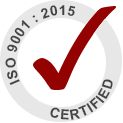Photomask Coating
For Use in Photolithography
A reliable protective coating for emulsion photomask to prevent sticking and pinhole formation. Increases semiconductor device yield and extends the life of resist masks.
FEATURES
- Mask lubricant and protective coating – prevents sticking
- Reduces pinhole formation – minimizes electrical shorts and poor definition
- Increases semiconductor device yield
- Simple to apply – no special equipment needed
- Safe and economical
PHOTOMASK COATING – 2060
DESCRIPTION
Transene Photomask Coating -2060 is a protective polymer coating designed to increase photomask life and to decrease its defect density. Device yields, for a given number of contacts, are increased significantly with negative photoresists. Yield improvement with positive resists can also be realized, although it is not as substantial as with negative resists.
Device yields and mask life are reduced when pinholes are produced in the mask due to the sticking of photoresists to the mask emulsion when the two are separated. The pinholes lead to possible electrical shorting and poor definition in the device, reducing yields. Coating the mask with Transene Photomask Coating protects the mask and reduces pinholes. The coating is formulated using a lubricating polymer and a non-toxic, hydro-alcohol solvent system.
PROPERTIES
| Appearance | Colorless liquid |
| Solvent System | Non-Toxic Hydro-alcohol |
| Viscosity (RT) | 140 cps |
| Specific Gravity | .917 |
| Coating Thickness | 6 microns (Nom.) |
| Surface Area Coated | 50 sq. ft. / qt. |
| Optical Transmission | |
| Visible | 99% |
| U.V. | 98% |
| Shelf Life | 6 months |
APPLICATION:
Clear coatings of approximately 6 microns can be obtained by dip-coating. Filtering may be necessary if the solution becomes contaminated with dust or other foreign particles after initial use. A 30-minute cure at 85 °C is required. However, curing under cacuum is recommended to prevent the possible formation of bubbles. For subsequent recoating, the previous mask coating may be removed by washing in hot water.

